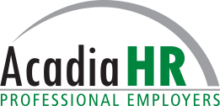Even before COVID-19, employees increasingly valued flexibility in their weekly work routines. According to a Flexjobs survey in 2019, only 16% of respondents were looking for a job that offered flexible work. Compare that to a recent GoodHire survey of those working from home since the start of the pandemic where 74% would need some sort of remote working arrangement to stay at their current job, and this shift clearly creates a new business challenge: the hybrid workplace.
In simple terms, the hybrid work model combines remote and in-office employees into one workforce. But going hybrid is not easy, and it requires careful thought, planning, and execution. To that end, businesses might find the following 5 steps helpful in transitioning the workplace from traditional to hybrid.
- Research. Learn about companies of like size and industry that have implemented hybrid work environments. Find out what is feasible for your business and what the rewards and challenges are. BNI may be a good resource as well as the Small Business Administration’s SCORE program, a nonprofit organization that provides free and confidential business mentoring services to small business owners in the United States.
- Communicate. Talk with your employees about reinventing the work environment. Seek to understand what they want and how they believe a hybrid work structure might work for them personally and professionally while sustaining the business level. A recent Salesforce survey revealed that roughly 1/3 of employees prefer working only from home, 1/3 prefer working only at work, and 1/3 prefer a combination of the two. While organizational decisions are ultimately yours to make, your staff’s preferences may suggest a good starting point for a hybrid work structure.
- Plan for Technology. Ensure that employees can securely and effectively work remotely by having access to the same resources and information as if they were in the office. Use technology to support and encourage collaboration amongst team members, as this is vital to the company’s success.
- Repurpose the Brick and Mortar. One of the benefits of a hybrid workplace is that office space is freed up. If relocating to a smaller location is not an option, consider reorganizing spaces to make them more open, being sensitive to those who embrace social distancing. Other options may be subletting to a business with whom you have a strategic partnership or building a retail outlet at your office. The possibilities are endless and largely depend on your type of business. Thinking outside the box here may give you an advantage over your competition.
- Always remember the Employee. Most important to any hybrid work environment is the employee. Remember, they choose to work for you. Your leadership style and management techniques can be the difference between a dysfunctional group performing below standards and a cohesive team operating at 100%. So please:
- Be flexible. Wherever possible, allow employees to work their preferred schedules. As team members, they will likely accommodate other colleagues’ schedules to a degree.
- Be inclusive. Ensure that those employees who elect to work remotely are included in all company activities and communications.
- Demand accountability. While many employees can perform well in a remote setting, not all can. Developing accountability strategies, such as mandatory computer logins, required attendance in meetings, periodic reports, and weekly one-on-ones where performance metrics are discussed, will do well to keep the employee engaged and focused on job performance.
Maybe Bob Dylan stated it best when he said, “The Times They Are a-Changin’.” So, get onboard. The hybrid workplace is here. Employees will demand it, job applicants will require it, and businesses who take action to meet this challenge will reap the rewards long after the pandemic is gone.
Acadia HR has been helping businesses locally and nationally since 1989 by delivering tools and resources to build efficiencies in their clients through personal, customized service. For more information on outsourcing options, please call 845.876.1987 or email sa***@******HR.com.

